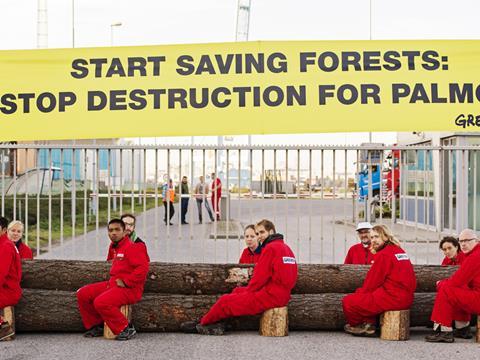
Sustainable palm oil certifier the RSPO has defended its standards and practices after the third-largest trader certified by its scheme was hit by a Greenpeace sting.
Greenpeace this week blockaded a palm oil refinery in a Rotterdam port owned by Malaysian company IOI, after a report accused its third-party suppliers of destroying forests, developing on peatland, using uncontrolled fires and committing human rights abuses including excessive force, worker exploitation and child labour.
IOI had previously been suspended by the RSPO but had its certification reinstated in August. Greenpeace told The Grocer the RSPO’s decision to lift the suspension before the issues had been fully addressed raised serious questions over the scheme.
“It was far too early for them to be readmitted,” said Jamie Woolley, campaigner at Greenpeace. “It seems to be a rubber-stamping exercise. It’s there to help its members to have that sheen of sustainability and responsible practice but without actually forcing them to do anything.”
But RSPO European director of outreach and engagement Danielle Morley said the scheme relied on NGOs and local communities to bring cases to its attention. She also said its complaints panel would be reviewing the IOI case. This could lead to it being re-suspended, she added.
Greenpeace has long been critical of RSPO standards, arguing they do not go far enough in areas such as peat.
Morley said the scheme revised its standards every five years, and the review in 2017/18 could include criteria on deforestation and peat, but that it was up to the members to decide.
IOI said it accepted its responsibilities and would look to use its influence to raise standards among third parties. Following its suspension in April, major brands including Unilever, Nestlé, General Mills and Mars pulled contracts with the company.







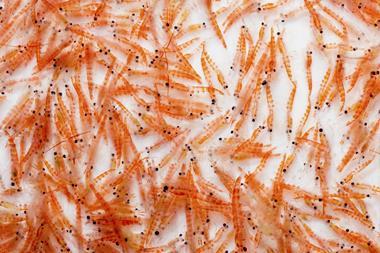

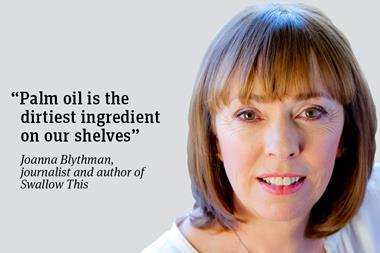
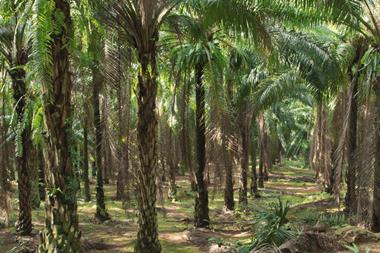
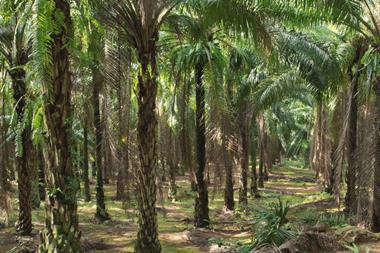
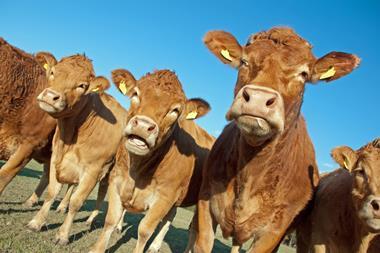






No comments yet